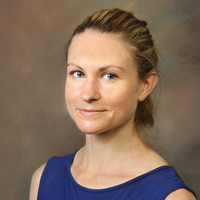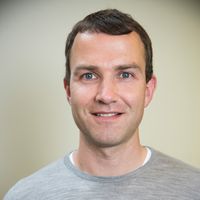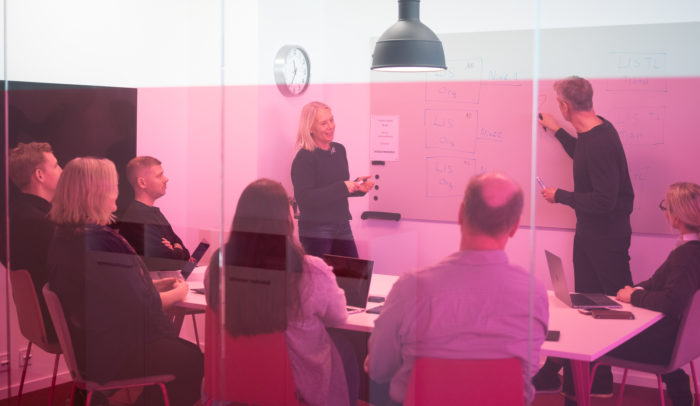DNS has become part of the foundation layer of the internet. On the surface it is a simple protocol, but all the small details make it a very complex system. We will dive into the newer parts of DNS and look at operational and architectural problems from different perspectives.
If you are involved with DNS, this is the track for you. You do not have to be an expert on the DNS protocol or know all the flags be heart. Although some talks will dive deep into technology, we will work hard to make it understandable to everybody who knows what DNS is.
In the last few years a lot of DNS development has happend around resolvers. We will take a closer look on what is happening in that area with large providers and how you could protect your own DNS data.
Other areas of interest are DNS policy, DNS for containers and service discovery.

Ulrich Wisser, Senior DNS Expert, The Swedish Internet Foundation
Ulrich currently works as DNS Expert at DNS-Labs, the R&D devision of the Swedish Internet Foundation. He is a contributor to IETF, ICANN and other industry events. Since 2017 he serves as a co-chair of the technical working group of Centr.
Program for this thematic track
Försnack
Keynote: Whitney Phillips, medieforskare

European Resolver Policy
The European DNS Resolver policy sets out the minimum policy and transparency
requirements that should be adhered to by operators of Domain Name System (DNS)
resolver services. It is intended to provide reassurance to end-users and other stakeholders that personal data1 gained in the operation of DNS resolution services are not used for any other purposes except where required by law or regulation, or with GDPR-level consent of the end-user and where it is clearly documented in the operator’s transparency and privacy statement.

Andrew Campling, Director 419 Consulting Ltd
Andrew Campling is Director of 419 Consulting, a public policy and public affairs consultancy focused on the tech and telecom sectors. He has over a decade of non-executive experience backed by nearly forty years of experience in a wide range of increasingly senior roles in a mainly business-to-business technology context. He is currently engaged in several initiatives linked to encrypted DNS and related developments.
No Port 53
The world of DNS is aflame with research into server-side mechanisms to improve privacy of client and recursive queries; yet a simple client-side stub-resolver hack offers adequate performance and security. How?

Alec Muffett, Security evangelist, architect and software engineer
Alec's work has included 17 years for Sun Microsystems, 3 years for Facebook, 8 years for the Open Rights Group, authorship of RFC7686 and a variety of open source software.
CoreDNS
This talk will walk you through the why and how of CoreDNS. After this talk you
will come away with how CoreDNS plugins work and how you can write one yourself.
It will also touch upon the good parts and even the less good parts of CoreDNS
and how it compares to the competition.

Miek Gieben,
Miek Gieben is an SRE in the financial industry. During his time in Google he
was responsible for running Google Public DNS. He has co-authored several RFCs
on the topic of DNS(SEC) and started the CoreDNS project several years back.
In his spare time he likes to ride his mountain bike and program a little.
(Neo)VIM is his editor of choice.
Android Flubot, its use of DNS and how best to reduce the spread
Android Flubot is distributed through SMS with links to download the
trojan (also called smishing) and targets more or less all of
Europe. Once a mobile device gets infected it receives SMS tasks from
the command and control server and sends about 5000 to 10000 SMS to new
victims each day.
Flubot spreads like a worm and at the same time makes heavy use of the
DNS. For example:
* it uses a domain generation algorithm (DGA)
* it makes use of DNS over HTTPS (DoH)
* it uses a Fast Flux DNS botnet
This is all to avoid take downs and network blocking. In this talk you
will learn how the trojan works and what the best strategy for
mitigations are.

Daniel Stirnimann, Analyst, SWITCH-CERT
Lunch
KINDNS
Kindns (kindness) is to DNS what MANRS is to BGP. A way to cooperate and make the internet a safer place.

Adiel Akplogan, ICANN
DNSSEC Automation
DNS-Labs has been working on a method for DNSSEC automation for more than a year now. We will show how far we have come and what part of the way is still ahead of us.

Ulrich Wisser, Senior DNS Expert, The Swedish Internet Foundation
Ulrich currently works as DNS Expert at DNS-Labs, the R&D devision of the Swedish Internet Foundation. He is a contributor to IETF, ICANN and other industry events. Since 2017 he serves as a co-chair of the technical working group of Centr.
Nätverka
Keynote: Maria Ressa, nobelpristagare










